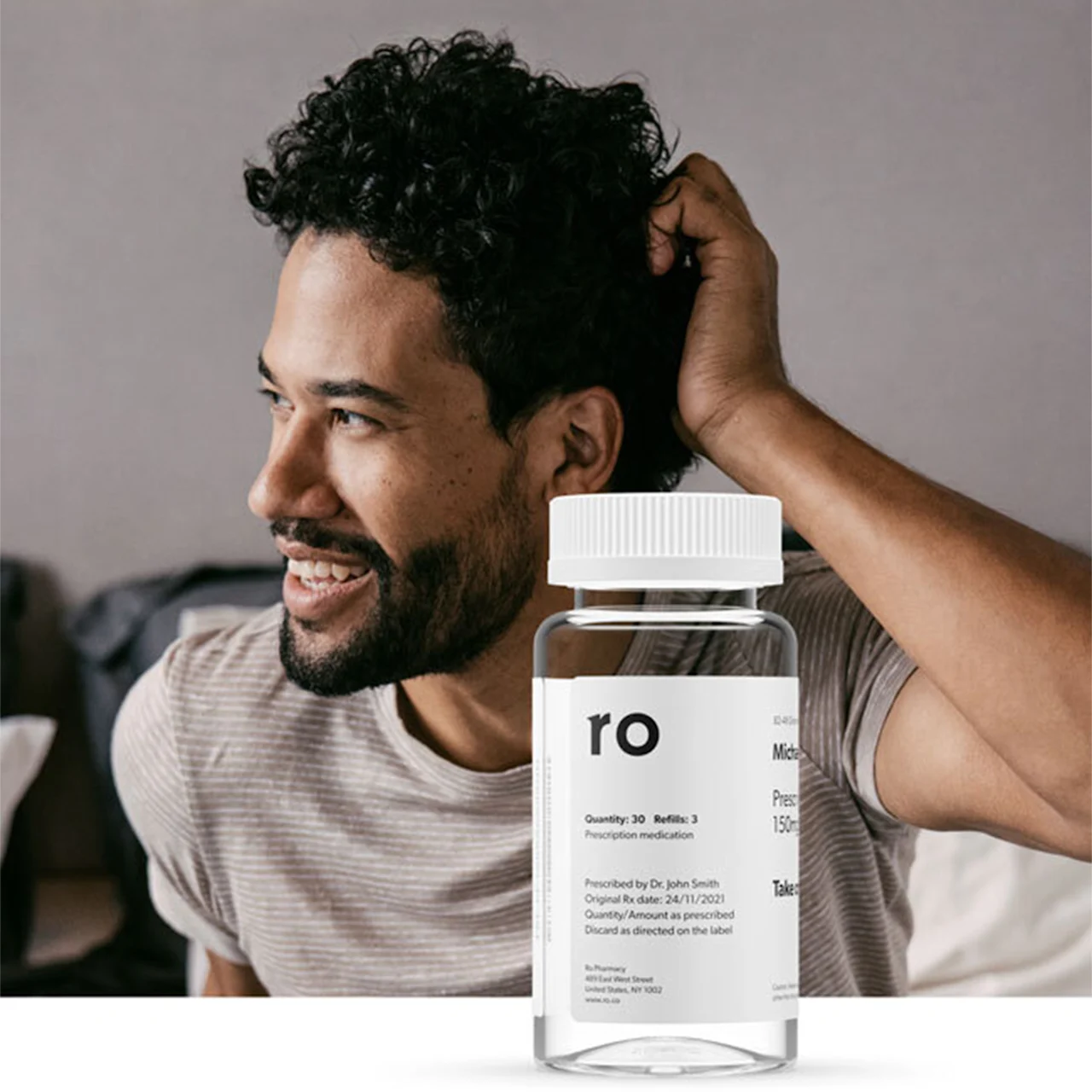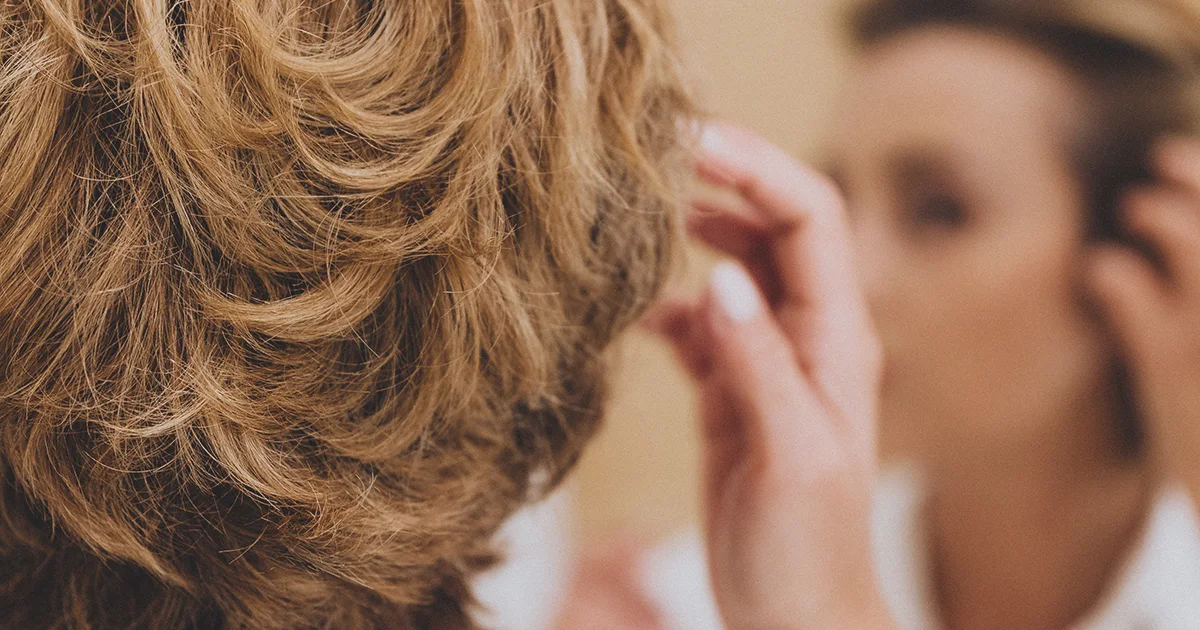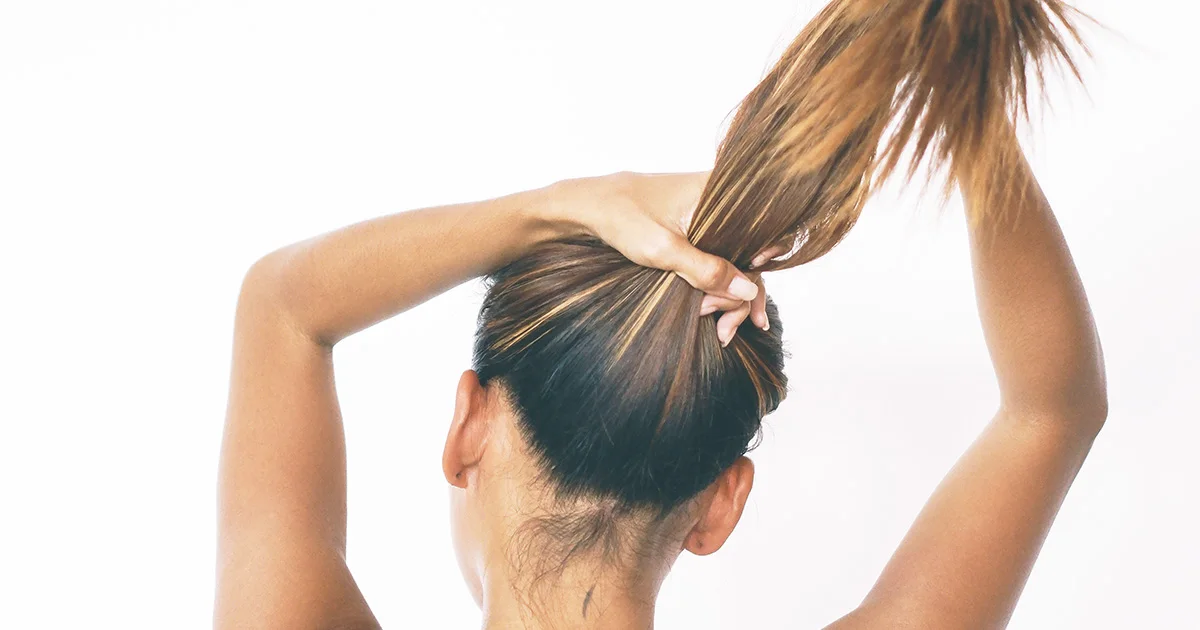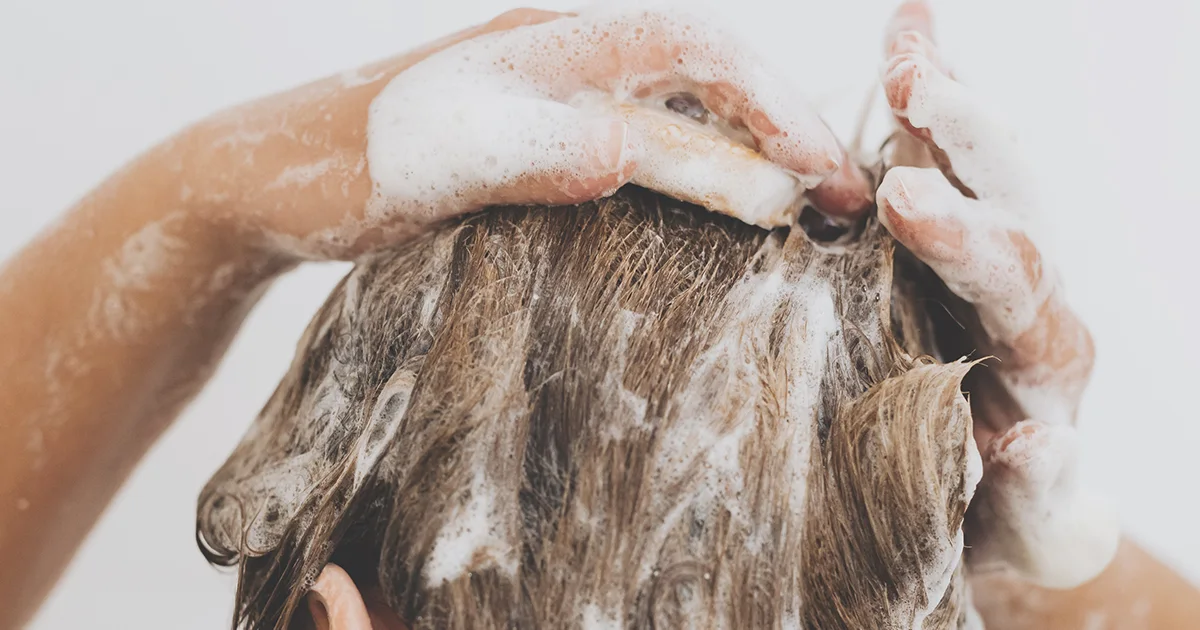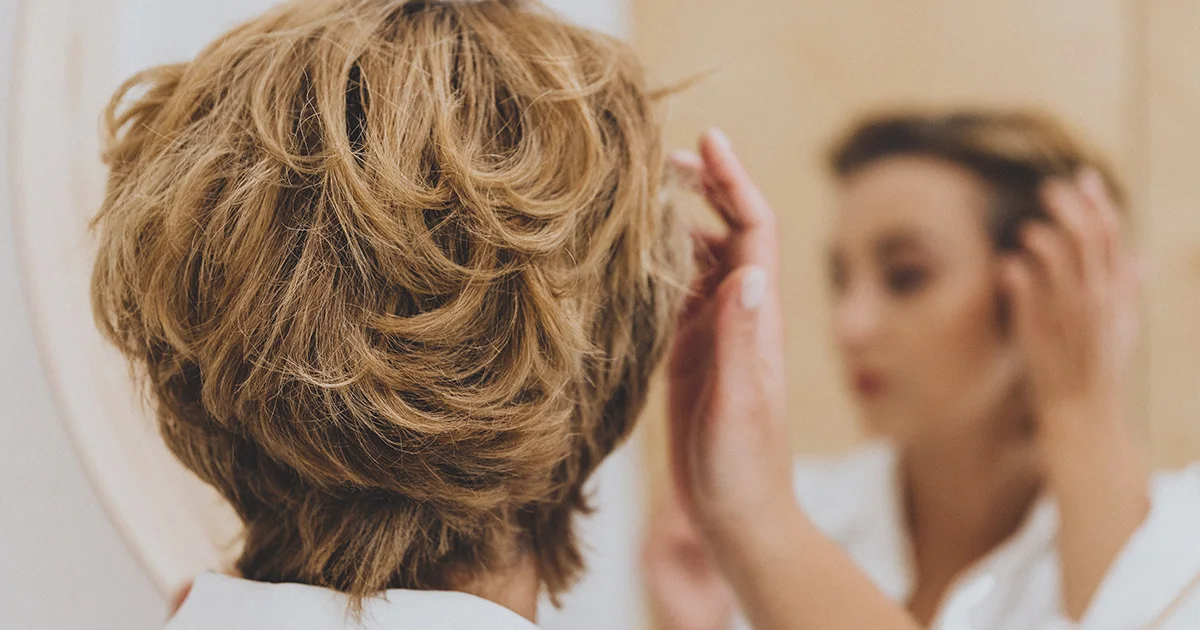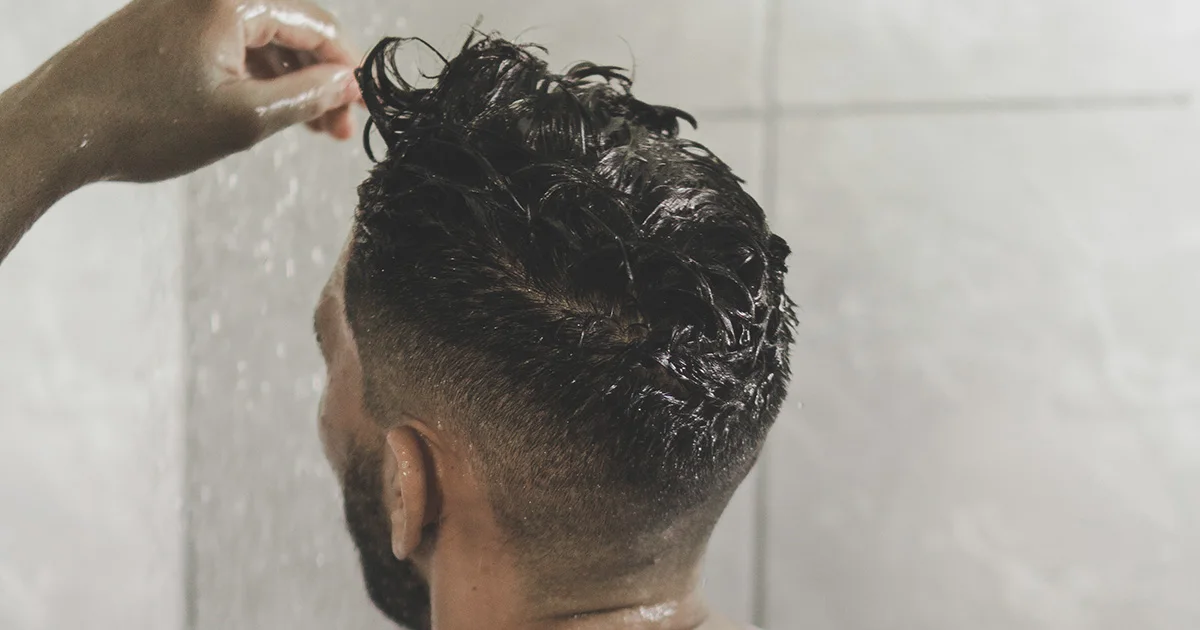Here's what we'll cover
Here's what we'll cover
Here's what we'll cover
If you notice your hair is losing its luster, or even shedding more than usual, there’s a chance a vitamin deficiency is to blame. While most hair loss, also known as alopecia, is genetic, vitamin deficiencies can cause hair loss or worsen existing hair loss.
Fortunately, most vitamin deficiencies related to hair thinning are not common. If they are present, they’re usually reversible. So, what vitamin deficiency causes hair loss? The most common deficiencies are iron, vitamin D, and zinc. But before you start ordering supplements, consult with a healthcare provider. Taking too many vitamins may lead to hair shedding or serious medical conditions (Guo, 2017). Continue reading to learn more about vitamin deficiency and hair loss.
What is a vitamin deficiency?
When people say vitamins, they’re often actually referring to vitamins, minerals, and lipids, which include essential fatty acids like Omega-3.
Vitamins are one of the six major categories of essential nutrients needed for human survival. These include water, carbohydrates, proteins (amino acids), lipids (fatty acids), vitamins, and minerals (Morris, 2022).
The body relies on a balance of essential nutrients. A deficiency in any category can throw the system off. When that happens, the body reallocates resources to ensure survival. For example, calcium, a mineral, is needed to keep the heart beating. If the body is low on calcium levels, it takes calcium away from bones. If the body is low on iron, which is required for red blood cells to carry oxygen, it can affect the scalp and hair follicles. The body keeps its iron supplies for more critical functions (Yu, 2022; Ems, 2022).
What causes vitamin deficiencies?
Vitamin deficiencies can occur for several reasons, including (Guo, 2017; Almohanna, 2019):
Diet (not eating a variety of healthy foods, not eating enough, and diets that cut out entire food groups)
Blood loss due to menstruation, illness, or injury
Diseases or conditions that limit the absorption of nutrients
Medications
Smoking
The average American diet usually offers enough nutrients for healthy hair, especially since many foods are fortified with vitamins. That’s why it’s rare to be deficient in nutrients like biotin, selenium, or Vitamin C to the extent that it causes hair thinning (Almohanna, 2019).
Iron deficiency and hair loss
When iron levels are low, cells (including hair follicles) don’t get the oxygen they need, and the heart has to work harder to supply it. Iron deficiencies are linked to (DeLoughery, 2017; Ems, 2022):
Low iron in the diet
Loss of blood, including menstrual cycles
Gastrointestinal bleeding
Medical conditions or issues that limit iron absorption.
Symptoms of iron deficiency
There may be no symptoms in milder cases of iron deficiency, and those who suffer from it may ignore symptoms like feeling tired, cold, anxious, or out of breath. Some notice hair loss, brittle nails, or restless legs. Cravings for dirt—a condition called pica—can occur. If undiagnosed and untreated, iron deficiency can lead to depression, heart problems, increased risk of infection, and pregnancy complications (NIH-a, 2022; Borgna-Pignatti, 2016).
Iron deficiency anemia can affect the normal hair growth cycle. Studies show iron deficiency may also play a role in female pattern hair loss and may worsen or trigger earlier male pattern baldness (Malkud, 2015; Park, 2013).
Iron deficiency treatments and considerations
While it can affect people of all ages, younger women are often diagnosed with iron-deficiency anemia after seeking medical advice about thinning hair. Hair typically regrows after iron is restored (DeLoughery, 2017).
Here are a few things to consider if you think you may be suffering from hair loss due to an iron deficiency:
Testing for iron deficiency often includes a test of the iron in the blood and a separate test to check levels of iron stored in the body (ferritin level blood test) (Park, 2013).
Vegans and vegetarians are at higher risk for iron deficiency; they need 1.8 times the amount of non-heme iron (heme iron is animal-based and easier to absorb) (Guo, 2017).
Some medications, calcium, and beverages like coffee, tea, and wine can affect iron absorption, especially non-heme iron (Ems, 2022).
Vitamin C intake helps the body absorb iron. (NIH-a, 2022).
Check with your healthcare provider about what type and when to supplement iron (Guo, 2017).
Foods high in iron include red meat, seafood, poultry, beans, lentils, fortified breads and cereals, nuts, dried fruits (NIH-a, 2022).
Too much iron can cause serious medical problems. Your healthcare provider should carefully guide and monitor you if you take an iron supplement (McDowell, 2022).
Vitamin D deficiency and hair loss
Vitamin D has been linked to different types of hair loss. Vitamin D receptors are found in keratinocytes, the skin cells that process a protein in hair called keratin. When vitamin D levels are low, it disturbs the hair follicle growth cycle (Lin, 2019; Gerkowicz, 2017).
The closest direct evidence of a link between vitamin D deficiency and hair loss is in cases of alopecia areata (AA), which involves immune cells attacking hair follicles. Researchers found that those with AA were more likely to be vitamin D deficient and that lower vitamin D levels increased the severity of hair loss (Gade, 2018).
Vitamin D deficiency has also been linked to biological male and female pattern hair loss and telogen effluvium (abrupt hair loss, often caused by a stressful event). Small studies have shown that lower levels of vitamin D coincide with these types of hair loss and that the lower the vitamin D levels, the worse the hair loss (Rasheed, 2013, Sanke, 2020).
Symptoms of vitamin D deficiency
Many people don’t know they have a vitamin D deficiency. The most common complaints of symptoms are muscle weakness and muscle and bone pain.
Vitamin D deficiency treatments and considerations
When vitamin D levels are low, healthcare providers usually recommend supplements to prevent a deficiency (Chauhan, 2022).
More research is needed to clarify the role of vitamin D and the impact of oral vitamin D supplements on hair loss. A topical treatment that contains a vitamin D compound called Calcipotriol is often used to treat AA with some success (Lin, 2019; Gerkowicz, 2017).
Here are a few things to consider if you think you may be suffering from hair loss due to a vitamin D deficiency (NIH-b, 2022):
Over-supplementing vitamin D can result in vitamin D toxicity (Marcinowska-Suchowierska, 2018).
Obesity and gastric bypass surgery can increase the risk of vitamin D deficiency.
Vitamin D is synthesized when skin is exposed to the sun.
Vitamin D2 is obtained from plant foods; vitamin D3 is made by animals when the skin is exposed to sunlight.
Vitamin D is not naturally found in many foods, though fatty fish, beef liver, and eggs are good sources. Fortified foods include milk and some brands of dairy products, cereals, and orange juice.
Zinc deficiency and hair loss
Hair loss is a well-known sign of zinc deficiency. Although zinc deficiency is not common, restoring zinc may help reverse hair losses in those who are deficient (Almohanna, 2019). This mineral is an essential part of cell growth, protein synthesis, and the immune system. It also helps repair hair follicles and maintain the oil glands in the scalp (Guo, 2017).
Symptoms of zinc deficiency
Symptoms of zinc deficiency include diarrhea, lowered immunity, and changes in taste, smell, and mood. You may also notice hair loss and brittle nails (Maxfield, 2022).
Zinc deficiency treatments and considerations
In one study of 312 people with AA, telogen effluvium (TE), and male and female pattern hair loss, all were shown to have lower zinc concentrations compared to 30 people with no hair loss. Those with AA and TE had the lowest levels of zinc (Kil, 2013). Another study showed those with AA and low zinc levels benefitted from zinc supplementation (Guo, 2017).
Researchers warn that using supplements when zinc levels are already normal can be dangerous and do not show a benefit. Zinc toxicity can cause pain, vomiting, and diarrhea, and long-term over-supplementation can lead to adverse interactions with iron and reduced immune function (Guo, 2017).
Here are a few things to consider if you think you may be suffering from hair loss due to a zinc deficiency (Guo, 2017; NIH-c, 2022):
Zinc deficiencies are uncommon in North America, but they can occur with conditions that make it harder to absorb zinc, such as inflammatory bowel disease, gastric bypass surgery, pregnancy, and alcoholism.
Vegetarians have an increased risk of deficiency because zinc levels are lower in vegetables than in meat.
Foods high in zinc include oysters, red meat, and poultry. Other good sources include seafood, nuts, beans, whole grains, fortified breakfast cereals, and dairy products.
Can vitamin overdosing lead to hair loss?
Sometimes, supplements meant to help hair growth can have the opposite effect. Too much vitamin A, vitamin E, and selenium can trigger hair loss (Guo, 2017).
Hypervitaminosis—a condition that occurs when you have too much of a certain vitamin in your body—is usually caused by fat-soluble vitamins, such as vitamin D and vitamin A. Selenium and vitamin E are also important for hair health, but deficiencies are rare. Overdosing on vitamins and minerals can cause a variety of symptoms, even serious medical conditions. So, it’s critical to talk to your healthcare provider about what you’re taking and the doses (Asif, 2022; Olson, 2022; Nessel, 2022; Owen, 2022).
Preventing vitamin deficiencies and hair loss
Follow these tips to prevent dietary deficiencies that could lead to hair loss (Guo, 2017; Almohanna, 2019):
Maintain a balanced diet and healthy weight; crash diets, rapid or extreme weight loss, and diets that cut out protein can trigger hair loss.
Work with your healthcare provider to correct any vitamin and mineral deficiencies.
Don’t overdose on vitamins; that can cause hair loss and other medical problems.
Schedule annual physicals to ensure medical problems aren’t causing vitamin and mineral deficiencies or other issues that may affect your health and hair.
Eat foods rich in antioxidants and healthy fatty acids; these are good for hair growth.
Treating hair loss
If you’re concerned that your hair loss is due to a vitamin deficiency, make an appointment with your healthcare provider. They will run the appropriate tests to determine a safe and effective treatment plan for you.
Sometimes, hair loss is a result of common female or male pattern baldness. Depending on the cause of your hair loss, a treatment such as oral minoxodil, topical minoxodil or finasteride may be appropriate to help regrow your hair.
Oral Minoxidil Important Safety Information: Read more about serious warnings and safety info.
Finasteride Important Safety Information: Read more about serious warnings and safety info.
DISCLAIMER
If you have any medical questions or concerns, please talk to your healthcare provider. The articles on Health Guide are underpinned by peer-reviewed research and information drawn from medical societies and governmental agencies. However, they are not a substitute for professional medical advice, diagnosis, or treatment.
References
Almohanna, H. M., Ahmed, A. A., Tsatalis, J. P., & Tosti, A. (2019). The role of vitamins and minerals in hair loss: A review. Dermatology and Therapy , 9 (1), 51–70. doi: 10.1007/s13555-018-0278-6. Retrieved from https://www.ncbi.nlm.nih.gov/pmc/articles/PMC6380979/
Asif, A. (2022). Vitamin D toxicity. StatPearls . Retrieved on Feb. 16, 2023 from https://www.ncbi.nlm.nih.gov/books/NBK557876/
Binitha, M. P., Betsy, A., & Sarita, S. (2013). Zinc deficiency associated with hypothyroidism: An overlooked cause of severe alopecia. International Journal of Trichology , 5 (1), 40. doi: 10.4103/0974-7753.114714. Retrieved from https://www.ncbi.nlm.nih.gov/pmc/articles/PMC3746228/
Borgna-Pignatti, C. & Zanella, S. (2016). Pica as a manifestation of iron deficiency. Expert Review of Hematology , 9 (11), 1075–1080. doi: 10.1080/17474086.2016.1245136. Retrieved from https://pubmed.ncbi.nlm.nih.gov/27701928/
Chauhan, K. (2022). Vitamin D. StatPearls . Retrieved on Feb. 16, 2023 from https://www.ncbi.nlm.nih.gov/books/NBK441912/
DeLoughery, T. G. (2017). Iron deficiency anemia. Medical Clinics of North America , 101 (2), 319–332. doi: 10.1016/j.mcna.2016.09.004. Retrieved from https://pubmed.ncbi.nlm.nih.gov/28189173/
Ems, T. (2022). Biochemistry, iron absorption. StatPearls . Retrieved on Feb. 16, 2023 from https://www.ncbi.nlm.nih.gov/books/NBK448204/
Gade, V. K., Mony, A., Munisamy, M., et al. (2018). An investigation of vitamin D status in alopecia areata. Clinical and Experimental Medicine , 18 (4), 577–584. doi: 10.1007/s10238-018-0511-8. Retrieved from https://pubmed.ncbi.nlm.nih.gov/29869122/
Gerkowicz, A., Chyl-Surdacka, K., Krasowska, D., et al. (2017). The role of vitamin d in non-scarring alopecia. International Journal of Molecular Sciences , 18 (12), 2653. doi: 10.3390/ijms18122653. Retrieved from https://pubmed.ncbi.nlm.nih.gov/29215595/
Guo, E. L. & Katta, R. (2017). Diet and hair loss: Effects of nutrient deficiency and supplement use. Dermatology Practical & Conceptual , 1–10. doi: 10.5826/dpc.0701a01. Retrieved from https://www.ncbi.nlm.nih.gov/pmc/articles/PMC5315033/
Kil, M. S., Kim, C. W., & Kim, S. S. (2013). Analysis of serum zinc and copper concentrations in hair loss. Annals of Dermatology , 25 (4), 405. doi: 10.5021/ad.2013.25.4.405. Retrieved from https://www.ncbi.nlm.nih.gov/pmc/articles/PMC3870206/
Lin, X., Meng, X., & Song, Z. (2019). Vitamin d and alopecia areata: Possible roles in pathogenesis and potential implications for therapy. American Journal of Translational Research . Retrieved from https://www.ncbi.nlm.nih.gov/pmc/articles/PMC6789271/
Malkud, S. (2015). Telogen effluvium: A review. Journal of Clinical and Diagnostic Research, 9 (9), WE01-WE03. doi: 10.7860/jcdr/2015/15219.6492. Retrieved from https://pubmed.ncbi.nlm.nih.gov/26500992/
Marcinowska-Suchowierska, E., Kupisz-Urbańska, M., Łukaszkiewicz, J., et al. (2018). Vitamin D toxicity–a clinical perspective. Frontiers in Endocrinology , 9 . doi: 10.3389/fendo.2018.00550. Retrieved from https://www.ncbi.nlm.nih.gov/pmc/articles/PMC6158375/
Maxfield, L. (2022). Zinc deficiency . StatPearls . Retrieved on Feb. 16, 2023 from https://www.ncbi.nlm.nih.gov/books/NBK493231/
McDowell, L. A. (2022). Iron overload. StatPearls . Retrieved on Feb. 16, 2023 from https://www.ncbi.nlm.nih.gov/books/NBK526131/
Morris, A. L. (2022). Biochemistry, nutrients. StatPearls . Retrieved on Feb. 16, 2023 from https://www.ncbi.nlm.nih.gov/books/NBK554545/
National Institutes of Health (NIH). (2022-a). Office of dietary supplements - iron . NIH Office of Dietary Supplements. Retrieved on Feb. 16, 2023 from https://ods.od.nih.gov/factsheets/Iron-Consumer/ .
National Institutes of Health (NIH). (2022-b). Office of dietary supplements - Vitamin D . NIH Office of Dietary Supplements. Retrieved on Feb. 16, 2023 from https://ods.od.nih.gov/factsheets/VitaminD-HealthProfessional/#h5 .
National Institutes of Health (NIH). (2022-c). Office of dietary supplements - zinc . NIH Office of Dietary Supplements. Retrieved on Feb. 16, 2023 from https://ods.od.nih.gov/factsheets/Zinc-HealthProfessional/ .
Nessel, T. A. (2022). Selenium. StatPearls . Retrieved on Feb. 16, 2023 from https://www.ncbi.nlm.nih.gov/books/NBK557551/
Olson, J. M. (2022). Vitamin A toxicity. StatPearls . Retrieved on Feb. 16, 2023 from https://www.ncbi.nlm.nih.gov/books/NBK532916/
Owen, K. N. (2022). Vitamin E toxicity. StatPearls . Retrieved on Feb. 16, 2023 from https://www.ncbi.nlm.nih.gov/books/NBK564373/
Park, S. Y., Na, S. Y., Kim, J. H., et al. (2013). Iron plays a certain role in patterned hair loss. Journal of Korean Medical Science , 28 (6), 934. doi: 10.3346/jkms.2013.28.6.934. Retrieved from https://www.ncbi.nlm.nih.gov/pmc/articles/PMC3678013/
Rasheed, H., Mahgoub, D., Hegazy, R., et al. (2013). Serum ferritin and Vitamin D in female Hair loss: Do they play a role? Skin Pharmacology and Physiology , 26 (2), 101–107. doi: 10.1159/000346698. Retrieved from https://pubmed.ncbi.nlm.nih.gov/23428658/
Sanke, S., Samudrala, S., Yadav, A., et al. (2020). Study of serum vitamin d levels in men with premature androgenetic alopecia. International Journal of Dermatology , 59 (9), 1113–1116. doi: 10.1111/ijd.14982. Retrieved from https://onlinelibrary.wiley.com/doi/abs/10.1111/ijd.14982
Yu, E. (2022). Physiology, calcium. StatPearls . Retrieved on Feb. 16, 2023 from https://www.ncbi.nlm.nih.gov/books/NBK482128/
